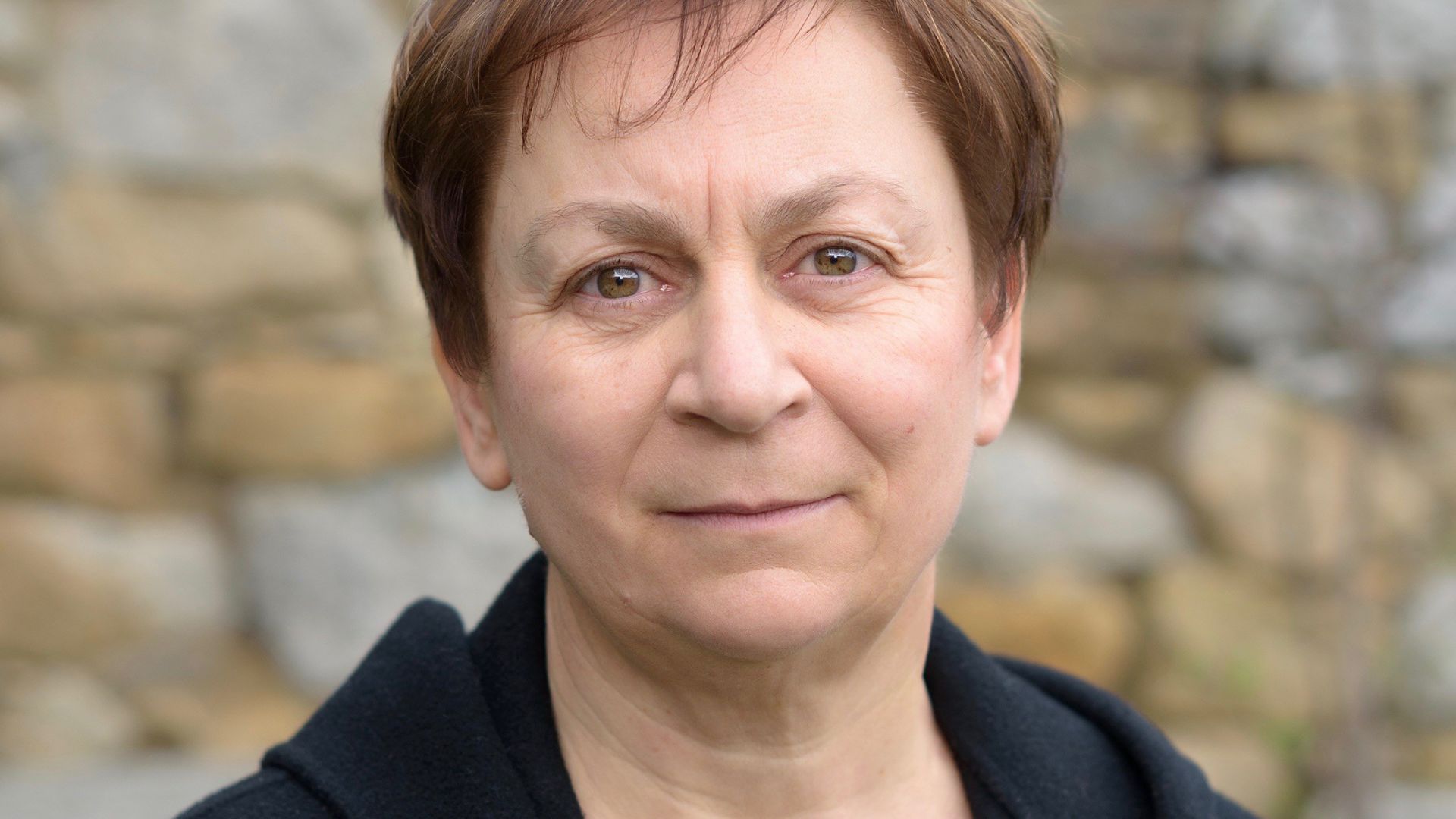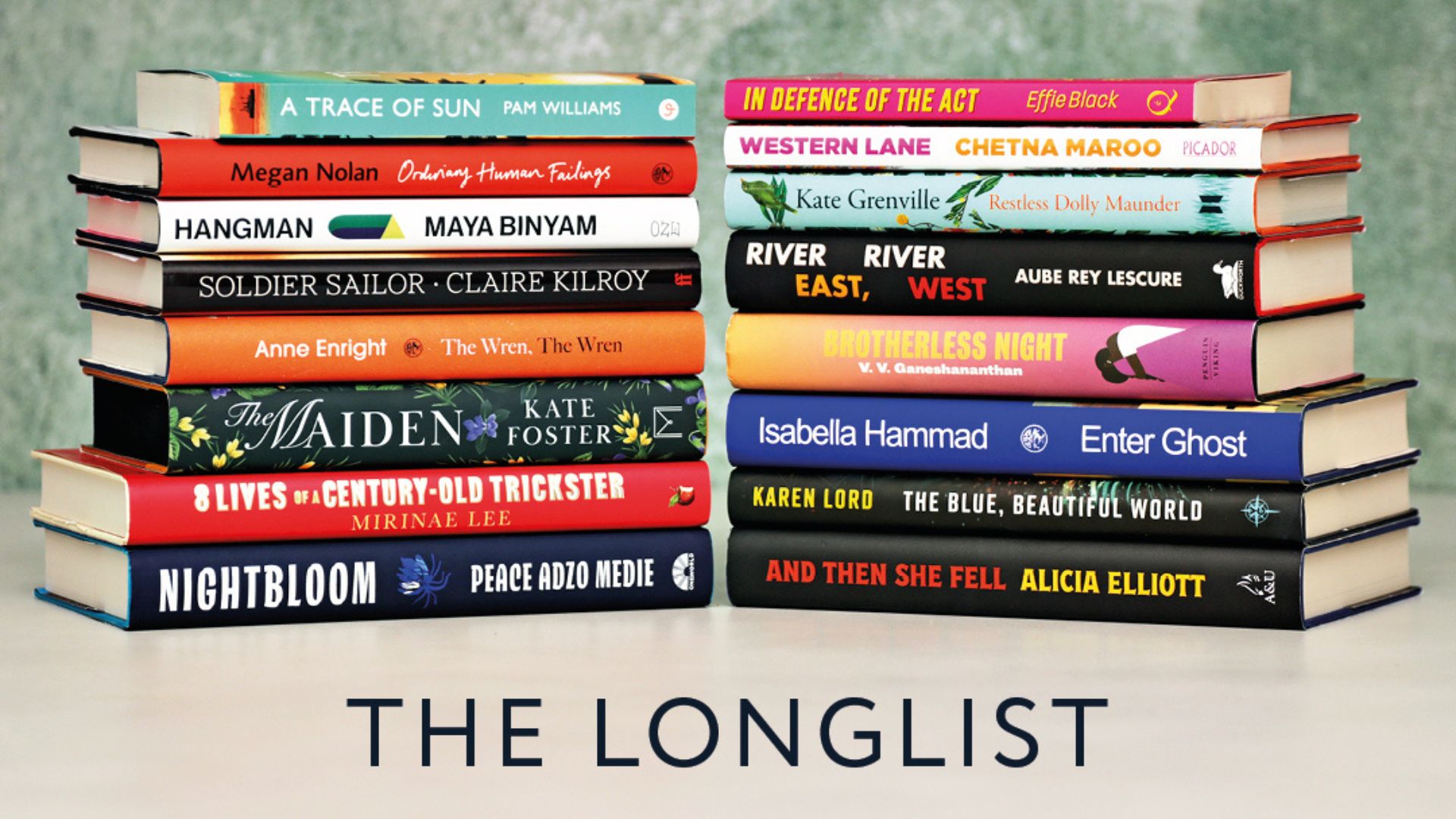You are viewing your 1 free article this month. Login to read more articles.
Jonathan Cape leads Women’s Prize for Fiction longlist with Anne Enright, Megan Nolan and Isabella Hammad
Jonathan Cape leads the longlist for this year’s Women’s Prize for Fiction with three books: Anne Enright’s The Wren, the Wren, Megan Nolan’s Ordinary Human Failings and Isabella Hammad’s Enter Ghost.
The 2024 longlist for the £30,000 prize features eight debut novelists, including Booker-Prize shortlisted Chetna Maroo for Western Lane (Picador), while previous winner Kate Grenville, who won the Women’s Prize for Fiction in 2001 with The Idea of Perfection (Viking), is nominated for the 2024 prize for Restless Dolly Maunder (Canongate).
Enright has become a stalwart in the awards, having previously been longlisted in 2008 for The Gathering and in 2020 for Actress and shortlisted in 2012 for The Forgotten Waltz and 2016 for The Green Road (all Jonathan Cape). V V Ganeshananthan, recognised this year for Brotherless Night (Viking), was also longlisted in 2009 for her first novel Love Marriage (W&N).
Independent publishers make a strong showing this year. Époque, a small independent, is recognised for the first time with Effie Black’s In Defence of the Act while Duckworth celebrates a second longlisting in two consecutive years with Aube Rey Lescure’s River East, River West. Legend Press and Pushkin Press (with its imprint One) both mark their third successful longlisting with Pam Williams’ A Trace of Sun and Maya Binyam’s Hangman, respectively.
Gollancz, the established UK-based publisher of science fiction, fantasy and horror, makes its first appearance with Barbadian author Karen Lord’s The Blue, Beautiful World. Alicia Elliott’s And Then She Fell (Allen & Unwin) is also longlisted alongside Kate Foster’s The Maiden (Mantle), Claire Kilroy’s Soldier Sailor (Faber & Faber), South Korean author Mirinae Lee’s 8 Lives of a Century Old-Trickster (Virago) and Ghanaian author Peace Adzo Medie’s Nightbloom (Oneworld).
Monica Ali, chair of the judges, said: “With the strength and vitality of contemporary women’s fiction very much in evidence, reading the entries for this year’s Women’s Prize for Fiction has been a joyful experience. Of course this made it all the more difficult to select the longlist, but after much lively discussion among the judges we are delighted with the 16 titles selected.
“Each one of these books is brilliant, original and utterly unputdownable. Collectively, they offer a wide array of compelling narratives from around the world, written with verve, wit, passion and compassion. They are books that will engage readers’ hearts and minds, they are filled with indelible characters, and they do what stories can do so powerfully: unsettle and disturb as well as surprise and delight.”
Ali said this year’s "fantastically strong longlist" was "testament to the strength of women’s voices from all around the world" considering how many different nationalities were represented. Of the 16 longlisted authors, five are British, three American, three Irish, one Barbadian, one South Korean, one Australian, one Ghanaian and one French/American.
When asked about the strong Irish representation on the shortlist, echoing this year’s Booker nominations, Ali told The Bookseller: "I think [the Irish] do take their literature very seriously, they do support their writers and give them the time and space needed for writing to flourish".
When questioned about the common themes in this year’s longlist, and what it said about contemporary women’s fiction, Ali commented on how "diverse" the novels were. "There really is something for everyone here, for every reader. So there’s historical fiction, science fiction, there’s coming-of-age stories, there’s comedy, tragedy, or sometimes a mix of the two. There are novels that are really intimate domestic dramas, there are novels that work on quite a big canvas and there are books that take us into all different corners of the world – so from Sri Lanka to the Middle East, or from Australia to Korea.
"If I had to pull out one theme it would be migration and emigration. I guess it’s not that surprising given that it’s one of the most pressing and debated issues of our time. What’s been fascinating to see is the very different ways that women writers have been engaging with that: from novels of return, like Hangman and Enter Ghost, [to] the immigrant experience in the US from Ghana in Nightbloom, and the experience of racism, and then there’s a story that is a sort of reversal of the usual immigrant story in River East, River West, in which an American woman and her daughter live in China. That’s been really interesting to see. The only other commonality I can pull out is just the vivid and strong characters. Characters who stay with you a very long time after you put the book down."
Ali is joined on the judging panel by author Ayọb̀ámi Adébáyọ; author and illustrator Laura Dockrill; actor Indira Varma; and presenter and author Anna Whitehouse.
A shortlist of six books will be announced on 24th April, with the winner awarded on Thursday 13th June at the Women’s Prize Trust’s summer party in central London, along with the winner of the 2024 Women’s Prize for Non-Fiction.



















